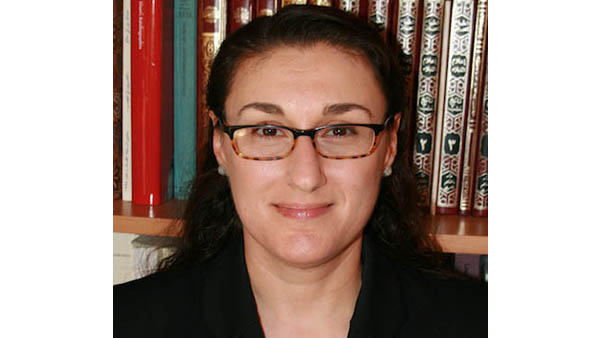|
The spring 2019 Armenian Studies Program Lecture Series offers two lectures this week.
Today, April 2
Dr. Jonathan Conlin of Southampton University (United Kingdom), gives a presentation on “Calouste Gulbenkian (1869-1955) and the Pasdurma Problem” at 7:30 p.m. Tuesday, April 2, in the University Business Center, Alice Peters Auditorium, Room 191.
Born into the Armenian merchant elite of Istanbul in 1869, the renowned oil magnate Calouste Gulbenkian made his fortune persuading rival oil companies to collaborate for their mutual enrichment, particularly in the Middle East. The violent collapse of the Ottoman Empire, the Armenian Genocide and the attempt to establish a secure “Armenian National Home” at Versailles barely affected Gulbenkian. His fellow Armenians nonetheless looked to him as benefactor and a leader of their diaspora. He was thus appointed to the presidency of the Armenian General Benevolent Union, the Paris-based philanthropy which sought to promote the welfare of Armenian refugees.
This talk argues that Gulbenkian’s cosmopolitanism reflected the amira class from which he hailed as much as it did that supranational world of multinational oil companies whose emergence Gulbenkian fostered.
Born in New York, Dr. Conlin studied history and modern languages at Oxford before undertaking graduate degrees at the Courtauld Institute and Cambridge, where he was subsequently appointed a Fellow of Sidney Sussex College. Since 2006, he has taught history at the University of Southampton. His books include a history of the National Gallery (London), a comparative history of Paris and London and a biography of Adam Smith. In 2019, he published "Mr. Five Per Cent: The Many Lives of Calouste Gulbenkian, World’s Richest Man," the product of five years research in 10 countries.
Copies of "Mr. Five Per Cent" will be on sale at the lecture.
Thursday, April 4
Dr. Heghnar Watenpaugh, of the University of California, Davis, will give a presentation on “The Missing Pages: The Modern Life of a Medieval Manuscript, from Genocide to Justice” at 7:30 p.m. Thursday, April 4, in the University Business Center, Alice Peters Auditorium, Room 191.
A story of genocide and survival, of unimaginable loss and resilience, "The Missing Pages" captures the human costs of war and persuasively makes the case for a human right to art. The Missing Pages is the biography of a manuscript that is an important part of Armenian cultural heritage.
In 2010, the J. Paul Getty Museum was sued by the Armenian Church for the return of eight pages from the Zeytun Gospels, a manuscript illuminated by the greatest medieval Armenian artist, Toros Roslin. Protected for centuries in a remote church, the holy manuscript had followed the waves of displaced people exterminated during the Armenian genocide. Passed from hand to hand, caught in the confusion and brutality of the First World War, it was cleaved in two. Decades later, the manuscript found its way to the Republic of Armenia, while its missing eight pages came to the Getty.
Dr. Watenpaugh follows in the manuscript’s footsteps through seven centuries — from medieval Armenia to the killing fields of 1915 Anatolia, the refugee camps of Aleppo, Ellis Island, and Soviet Armenia, and ultimately to a Los Angeles courtroom. Reconstructing the path of the pages, she uncovers the rich tapestry of an extraordinary artwork and the people touched by it.
Dr. Watenpaugh is professor of art history at UC Davis. She is the award-winning author of "The Image of an Ottoman City: Architecture in Aleppo (2004)." Her writing has also appeared in the Huffington Post and the Los Angeles Times.
Copies of "The Missing Pages" will be on sale at the lecture.
Both lectures are free and open to the public. Parking is available in Fresno State Lots P6 and P5, near the University Business Center. A free parking code can be obtained by contacting the Armenian Studies Program.
For more information about the lecture, call 559.278.2669, visit www.fresnostate.edu/armenianstudies or Facebook @ArmenianStudiesFresnoState.
|



